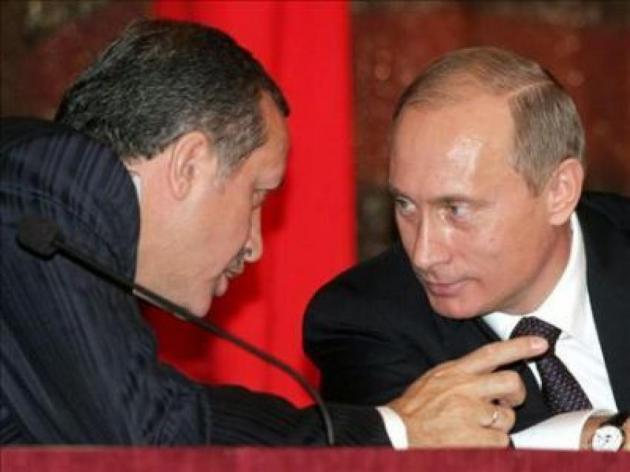By ahval
Turkish President Recep Tayyip Erdoğan said his country would not take steps against Russia as a result of the nerve agent attack on a Russian ex-spy and his daughter in Britain, the Turkish pro-government Sabah newspaper said .
Turkey’s NATO ally Britain has expelled 23 Russian diplomats and at least 26 other countries have ordered 130 more Russian diplomats to leave as a result of the poisoning of Sergei Skripal and his daughter Yulia in the British city of Salisbury. London says Russia was behind the attack. Russia strongly denies the charge and has retaliated by expelling British diplomats.
“Just because some countries took steps based on a claim, we are not in a position to take a similar step,” Erdoğan told reporters.
His comments follow a statement by Turkey’s Foreign Ministry condemning the use of chemical weapons, but not mentioning Russia. Turkey has drawn closer to Russia’s orbit in recent years over the Syrian civil war, developing closer ties and cooperation despite supporting opposing sides. A rift has opened up between Turkey and the West meanwhile over Erdoğan’s increasingly authoritarian policies, human rights violations and a string of diplomatic disputes.
Melih Altınok, a columnist for the staunchly pro-government Sabah, said no reasonable explanation had been made to explain why Russia would have attempted an attack such as the one in Salisbury. “There is no reason for Putin to take such a risk that could imperil him in the international arena for an inactive former spy,” he wrote .
Altınok pointed to the United States as the likely culprit in order to spoil London’s possible rapprochement with Russia after Britain leaves the European Union.
“The first agent that comes to my mind is the U.S. deep state,” Altınok said.
İbrahim Karagül, a columnist for the pro-government Yeni Şafak believes the decision of European and U.S. governments to expel Russian diplomats reveals a major East-West rift that could one day erupt into a major war.
“Both Russia and Turkey are facing similar threats, they are forming similar shields of defence. I think that the Europe-Russia crisis is going to bring Ankara and Moscow closer. This is the way it needs to be. The two countries need to see the global-scale threats and help each other,” he said.









